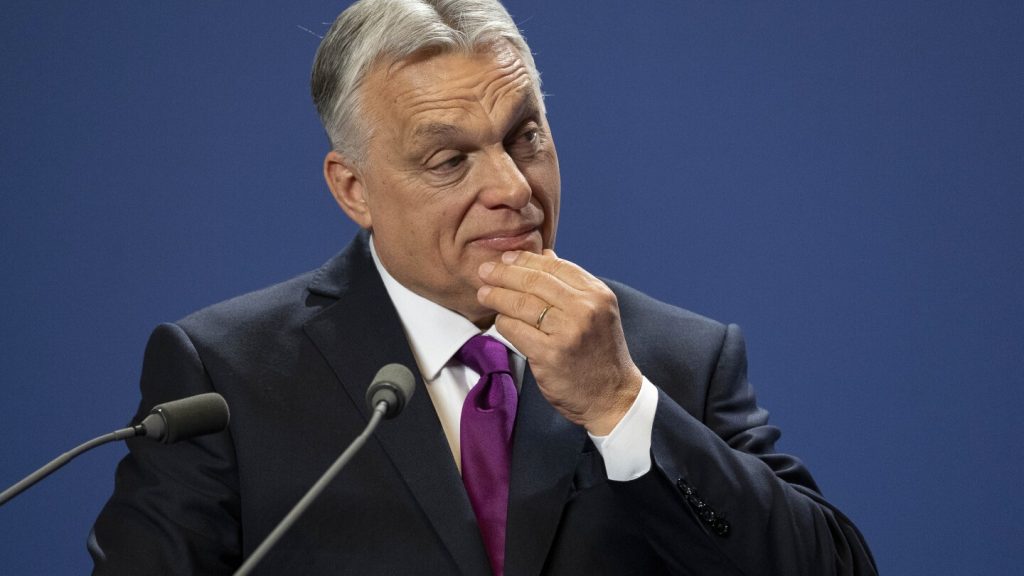BUDAPEST, Hungary (AP) — The nationalist party of Hungarian Prime Minister Viktor Orbán introduced a bill late Tuesday that would allow the government to monitor, restrict, penalize and potentially ban organizations it deems a threat to national sovereignty, marking a significant escalation of the government’s long-running crackdown on critical media and non-governmental organizations.
The bill, submitted by a lawmaker in Orbán’s Fidesz party, would expand the authority of Hungary ‘s controversial Sovereignty Protection Office, allowing it to identify organizations that influence public debate or voter sentiment in ways it considers detrimental to Hungary’s interests.
Under the proposed legislation, such organizations could be placed on a list by governmental decree, stripped of key funding and subjected to severe financial penalties if they are found to “endanger the sovereignty of Hungary by carrying out activities aimed at influencing public life with foreign support.”
The bill would also allow the bank accounts of affected organizations to be monitored, and access to the accounts and transactions deemed to violate the new provisions could be blocked.
The measure is the latest in an escalating effort by Orbán’s government to tighten its control over political expression and civic engagement in Hungary as the European Union’s longest-serving leader faces a major challenge to his 15-year grip on power in elections scheduled for next year.
Parliament will likely vote on the bill in the coming days and it is expected to pass since Fidesz has a two-thirds majority.
Facing mounting legal and financial pressure from the government, many of Hungary’s independent media outlets and NGOs have increasingly depended on international grants and assistance to sustain their operations.
But in a February speech laced with conspiracy rhetoric, Orbán said that organizations that receive any funding from outside Hungary’s borders “have to be taken down, they have to be swept away … It is necessary to make their existence legally impossible.”
Orbán has for years enacted crackdowns on NGOs and independent media, passing laws that critics say seek to stigmatize and obstruct groups that provide protection for women and minorities, offer legal and human rights assistance and expose official corruption.
Those efforts ramped up in 2023 when Orbán’s right-wing populist government launched the Sovereignty Protection Office, an authority tasked with investigating organizations and media outlets it deems to be exerting foreign influence.
The office has the power to gather information on any groups or individuals that benefit from foreign funding and influence public debate, and Hungary’s secret services can assist in its investigations. Violations can result in prison terms of up to three years.
Opponents of the government’s policies have compared the Sovereignty Protection Office to Russia’s “foreign agent” law, and said it can be used to arbitrarily target government critics, including NGOs and journalists.
The bill introduced Tuesday outlines a broad definition of what constitutes a threat to sovereignty. Organizations may be targeted if they oppose or portray in a negative light values such as Hungary’s democratic character, national unity, traditional family structures, or Christian culture — suggesting that even legitimate criticism of government policy could be treated as a national security threat.
Groups placed on the list would be barred from receiving donations through Hungary’s 1% personal income tax program — a vital funding stream for many non-profits — and would be required to obtain special authorization from the national tax authority to accept any foreign donations.
In addition, Hungarian citizens donating to listed organizations would need to submit a formal declaration affirming that their contributions were not sourced from abroad. Organizations found to have received prohibited support would be subject to fines amounting to 25 times the value of the offending donation.


